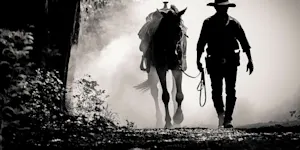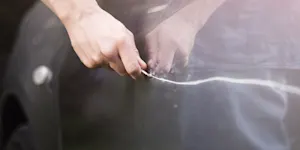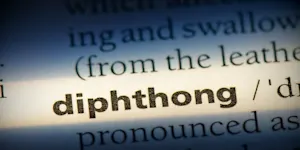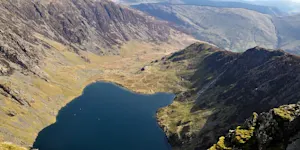What Makes This Word Tick
"Gloaming" isn't just any time of day—it's that magical, whispery moment when the sky transforms from blue to a velvety indigo. Often called twilight or dusk, it's a time of transition where day gently merges with night, creating a canvas for stargazers and poets alike.
If Gloaming Were a Person…
Imagine meeting someone who thrives in moments of quiet reflection, with a wardrobe in shades of deep blue and purple. This person would probably be an artist or a philosopher, musing about the beauty of fleeting moments. They're not the life of the party but rather the intriguing guest in the corner sharing meaningful stories.
How This Word Has Changed Over Time
Originally from the Old English word "glōm," meaning twilight or a time close to dark, "gloaming" has retained its serene essence over centuries. While it's become less common in everyday language, it continues to appear in poetry and literature, capturing the imagination with its timeless charm.
Old Sayings and Proverbs That Use Gloaming
"You can always find silver threads in the gloaming." Though not a widely known proverb, sayings like this remind us of the unexpected beauty and wisdom found in transitional times, suggesting hope and serenity as daylight fades.
Surprising Facts About Gloaming
Did you know "gloaming" shares roots with the word "gloom"? Yet, rather than conveying sadness, "gloaming" evokes a sense of peace and wonder. It's also interestingly featured in Scottish ballads, adding a layer of cultural melody to its enchanting aura.
Out and About With This Word
The word "gloaming" frequently makes appearances in nature writing and travel magazines, particularly those extolling the virtues of sunset views and scenic landscapes. It’s a favorite among photographers and artists who seek to capture the elusive beauty of twilight.
Pop Culture Moments Where Gloaming Was Used
J.R.R. Tolkien's works often use "gloaming" to set the dreamy scenes of Middle-earth, inviting readers into a land of mythology and adventure. And in film, gloaming scenes provide perfect backdrops for pivotal, emotional moments between characters.
The Word in Literature
Wordsworth and other Romantic poets loved inserting "gloaming" into their verses. It's a word that serves both mood and mystery, often appearing in passages describing the quiet splendor of dusk over the countryside or the changing of the guard from day to night.
Moments in History with Gloaming
Consider the signing of peace treaties at sunset or soldiers returning home after long battles as dusk falls. Such historical moments seem perfectly encompassed by the feel of "gloaming"—marked by relief, contemplation, and hope wrapped in the twilight hour.
This Word Around the World
In Gaelic, twilight might be called "An Crepusclaire," in France it’s "crépuscule," and both carry the essence of a transitional time of day. Worldwide, this twilight time is celebrated in various ways, from twilight festivals to midnight sun celebrations near the poles.
Where Does It Come From?
Derived from the Old English "glōm," meaning twilight, and intimately linked to Scottish tradition, "gloaming" has a rich history woven through ballads and folklore, serving as a bridge between language and cultural heritage.
How People Misuse This Word
Sometimes "gloaming" is incorrectly used to refer to the actual night rather than the fleeting moments before it. It's important to remember that it specifically indicates that brief period where both day and night coexist.
Words It’s Often Confused With
Twilight: While both refer to the transition from day to night, twilight can also mean the period just before sunrise.
Dusk: A close relative, but usually indicates the time just after the gloaming as night fully sets in.
Evening: A broader term covering late afternoon to nightfall, lacking gloaming's specific, magical touch.
Additional Synonyms and Antonyms
Synonyms include dusk, twilight, and eventide. Antonyms, on the other hand, might be dawn or daybreak, representing the opposite transition from night into day.
Want to Try It Out in a Sentence?
"As the birds began their evening chorus, the city streets took on a different pace in the gentle embrace of the gloaming."
















